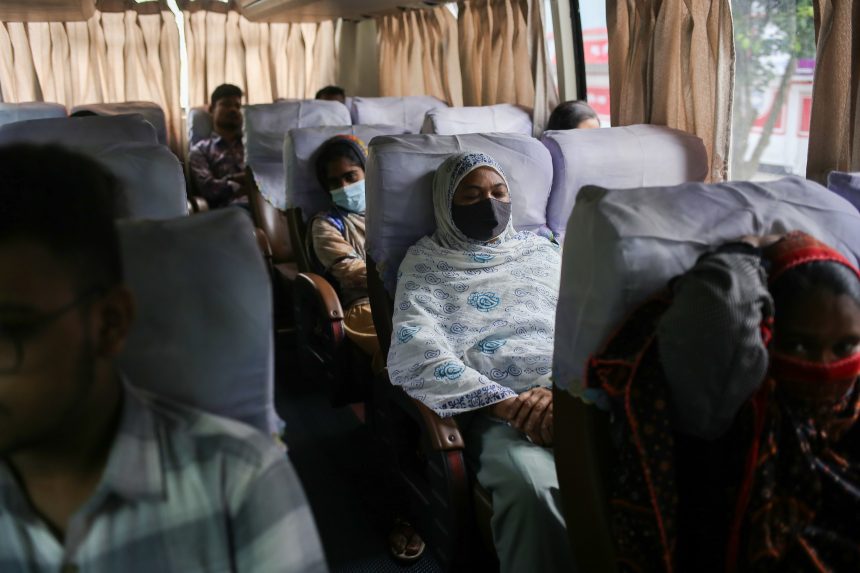Bangladesh is once again witnessing a rise in COVID-19 cases, with 40 new infections reported in the first 10 days of June and one confirmed death.
Health experts, however, are advising the public not to panic but to follow health guidelines strictly.
According to the Directorate General of Health Services (DGHS), the recent fatality was an elderly man aged between 81 and 90 who had been under treatment at a private hospital in Dhaka.
The latest DGHS bulletin, released on Tuesday afternoon, reported 13 new cases in the past 24 hours.
Since the start of the pandemic five years ago, Bangladesh has confirmed a total of 2,051,760 cases. Of these, 2,019,378 people have recovered.
Only 101 tests were conducted in the past day, producing a daily positivity rate of 13.87 per cent. The overall positivity rate now stands at 13.05 per cent, with a recovery rate of 98.41 per cent and a fatality rate of 1.44 per cent.
Looking back at 2020:
In the first 10 days of March 2020, only 14 cases were confirmed, and 6,393 individuals were under home quarantine. Among those early cases, one patient died and three recovered.
Bangladesh detected its first COVID-19 case on 8 March 2020, followed by the first death on 18 March.
New variants detected, but no major concern yet:
The International Centre for Diarrhoeal Disease Research, Bangladesh (icddr,b) recently reported the detection of new Omicron sub-variants—XFG and XFC—linked to the latest surge.
These variants, part of the JN.1 lineage, were first identified in April at Chattogram Medical College Hospital and have since appeared in several regions.
Although these sub-variants have contributed to the rise in cases, icddr,b states that there is no immediate cause for alarm.
The organisation recommends vaccination—particularly for the elderly and immunocompromised—wearing masks in crowded places, maintaining hand hygiene and staying at home when feeling unwell.
Dr Mushtaq Hossain, former chief scientific officer of the IEDCR, echoed this message. “The virus has changed its form: most recent cases are due to the new Omicron sub-variants, and there is no need for undue panic,” he told TIMES of Bangladesh.
He emphasised the importance of basic health protocols and accelerating the vaccination programme, especially for those who have not received a booster dose in the past six months.
In view of rising infections in neighbouring countries, the Directorate of Secondary and Higher Education (DSHE) has issued five guidelines for all educational institutions: wash hands with soap and water for at least 20 seconds; wear masks in schools and on public transport; keep at least three feet from anyone who is infected; avoid touching the face with unclean hands; and cover the nose and mouth when coughing or sneezing.
Professor Dr Muhammad Azad Khan, director general of the DSHE, urged all schools to follow the health ministry’s protocols strictly to safeguard pupils and staff.
On 6 June, the Ministry of Health and Family Welfare advised citizens—particularly the elderly and chronically ill—to wear masks in crowded areas. A notice on 4 June had already highlighted rising infection rates abroad due to new Omicron sub-variants, prompting the authorities to tighten surveillance at land, sea and airports.

‘Be prepared,’ warns health expert:
Dr Benazir Ahmed, former director of the DGHS Disease Control Unit, cautioned that immunity from earlier vaccinations may now be waning.
“We must prepare for a possible large-scale resurgence,” he said, calling for special attention to those with conditions such as diabetes, hypertension, kidney disease, cancer and pregnancy.
As Bangladesh confronts this renewed challenge, health officials continue to urge a calm but vigilant approach—prioritising preventive measures, vaccination and public awareness rather than panic.


